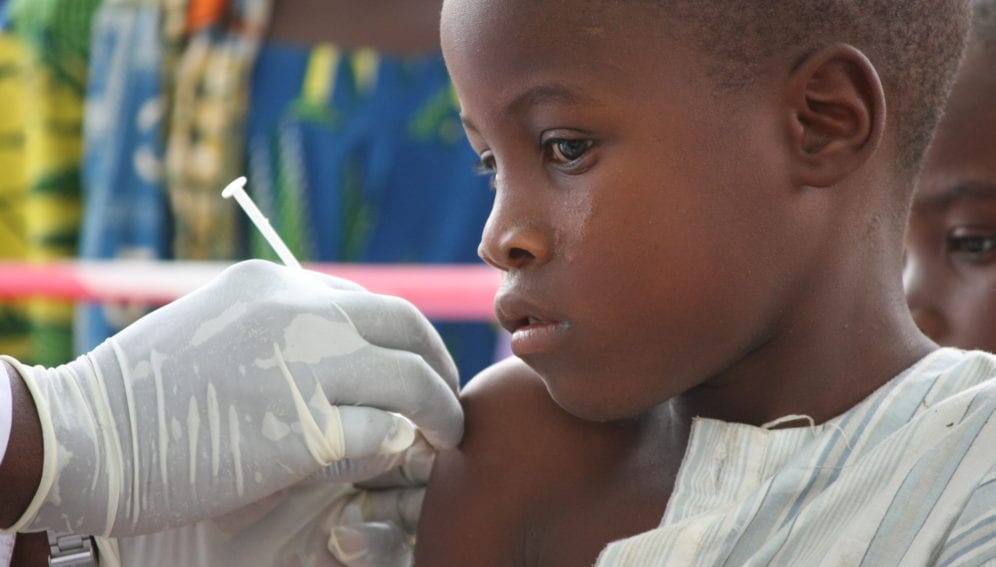11/07/19
Viruses cause 61 per cent of severe childhood pneumonia

By: Jacquie Ogada
Send to a friend
The details you provide on this page will not be used to send unsolicited email, and will not be sold to a 3rd party. See privacy policy.
[NAIROBI] Respiratory syncytial virus (RSV) has become the most common cause of pneumonia and needs to be a primary target for dedicated prevention and treatment efforts, especially for children younger than six months, a study has found.
The study says that over 60 per cent of severe childhood pneumonia cases in low and middle-income countries are now linked to viruses whereas bacteria account for about 27 per cent of cases.
The emergence of viruses, particularly the RSV, as the main cause of pneumonia points to the growing need for new vaccines, according to the researchers.
Respiratory syncytial virus ̶ a common virus that leads to mild, cold-like symptoms in adults and children ̶ is highly contagious, infecting the lungs and breathing passages through coughs, sneezes or contaminated surfaces.
According to the United Nations Children's Fund pneumonia kills half a million children under five in Sub-Saharan Africa ̶ which is half of pneumonia deaths among children under five globally ̶ yet funding for pneumonia prevention, management and treatment in the region remains low.
“Respiratory syncytial virus and other viruses now appear to be the main causes of severe childhood pneumonia in low- and middle-income countries.”
Maria Deloria Knoll, Johns Hopkins Bloomberg School of Public Health
The study was conducted to identify the causes of severe childhood pneumonia among children living in seven African and Asian countries: Bangladesh, Gambia, Kenya, Mali, South Africa, Thailand and Zambia.
“Respiratory syncytial virus and other viruses now appear to be the main causes of severe childhood pneumonia in low- and middle-income countries accounting for 61 per cent of all cases,” says Maria Deloria Knoll, a co-principal investigator of the study and a senior scientist at the Johns Hopkins Bloomberg School of Public Health in the United States.
The research published by the Lancet last month (27 June) assessed 1,769 children under five years old with severe childhood pneumonia and 5,119 counterparts without the disease from 15 August 2011 to 30 January 2014 in the seven countries for evidence of the causes of the disease from samples such as sputum and blood.
According to the study, respiratory syncytial virus alone contributed to 31 per cent of all the cases that were linked to viruses, bacteria or other causes, representing the highest proportion identified.
Knoll says that the main causes of pneumonia now are not the same as they were in past decades in part due to successful vaccines.
For example the bacteria – Haemophilus influenzae type b and Streptococcus pneumoniae – used to be top causes of pneumonia but widespread use of effective vaccines against them is now common.
Knowing the current causes of severe childhood pneumonia is vital in targeting effective prevention and treatment strategies, Knoll explains, adding that researchers are working to develop vaccines against respiratory syncytial virus.
“We must ensure oxygen supplies are adequate and provided to children with pneumonia, especially since diseases caused by viruses do not respond to antibiotic therapy,” Knoll says.
Oliver Malande, a specialist in paediatric infectious diseases and director of the East Africa Centre for Vaccines and Immunization, tells SciDev.Net that the study’s finding is a true reflection of the emerging threat from viral causes of childhood pneumonia.
Malande adds that challenges in controlling severe childhood pneumonia in low- and middle-income countries include inadequate availability of vaccines, and poorly equipped hospitals.
Strategies to prevent pneumonia caused by respiratory syncytial virus include hand washing and minimising contact with sick people, Malande explains.
Knoll calls for promotion of breastfeeding so that mothers can pass protective antibodies to babies, and improved nutrition to promote a strong immune system to fight the disease.
This piece was produced by SciDev.Net’s Sub-Saharan Africa English desk.
References
The Pneumonia Etiology Research for Child Health (PERCH) study group Causes of severe pneumonia requiring hospital admission in children without HIV infection from Africa and Asia: the PERCH multi-country case-control study (Lancet, 27 June 2019)













